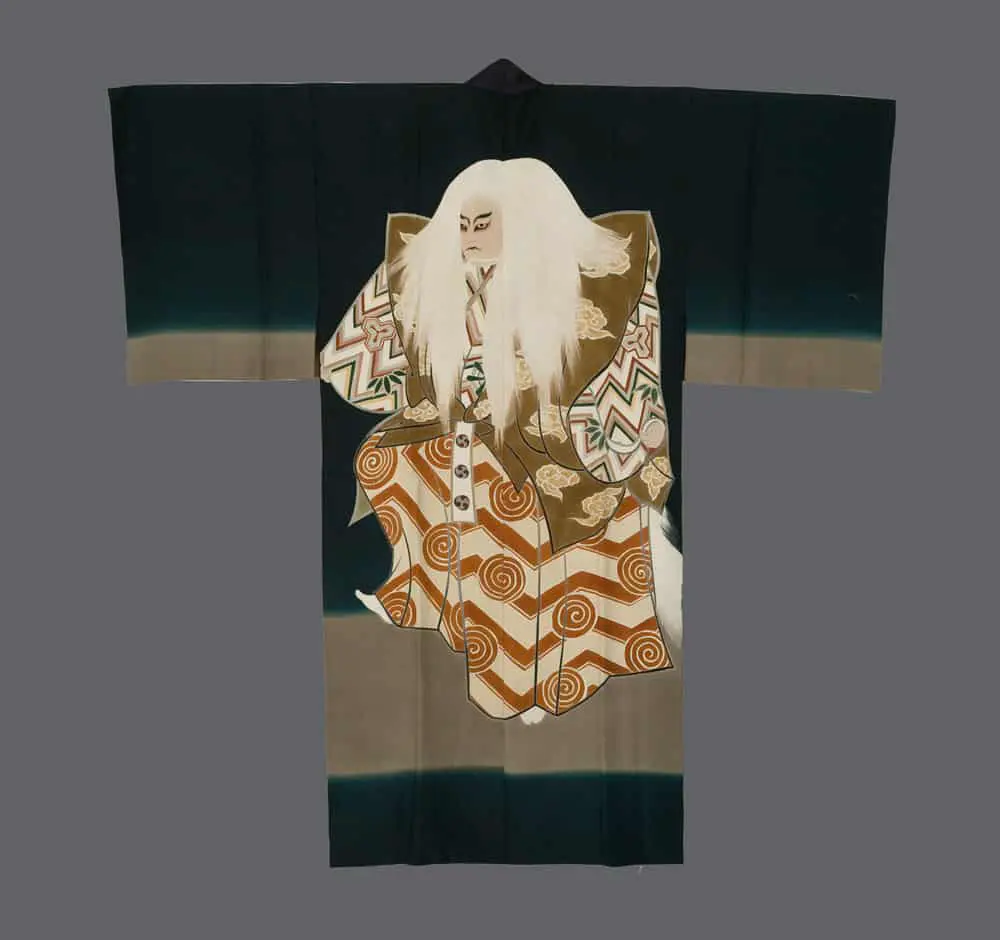This silk man's juban features a masterful hand-painted depiction of Renjishi, the white-haired lion spirit from the Noh play "Aimai." The garment showcases the dramatic character rendered in bold, stylized strokes characteristic of traditional Japanese theatrical art, with flowing white hair and an expressive face that captures the supernatural essence of this mythical being. The artist has employed a rich palette of earth tones—deep teals, warm browns, and golden yellows—set against horizontal bands of color that create a sense of movement and dynamism across the textile's surface.
The decorative motifs throughout the garment reflect traditional Japanese symbolism, with swirling cloud patterns (kumo) and geometric designs that may represent spiritual energy or divine presence, appropriate for depicting this celestial lion character. The Renjishi itself symbolizes protective power and spiritual strength in Japanese culture, often associated with warding off evil spirits and bringing good fortune. The artistic treatment shows influences from both traditional Japanese painting techniques and the modernist sensibilities of the 1920s-30s, when Japanese artists were increasingly experimenting with bold compositions and streamlined forms while maintaining their cultural heritage.
It has a number of light stains, particularly on the white hair, its measurements are approximately 52 inches (132 cm) from sleeve-end to sleeve-end and 51 inches (130 cm) in height.
.avif)








